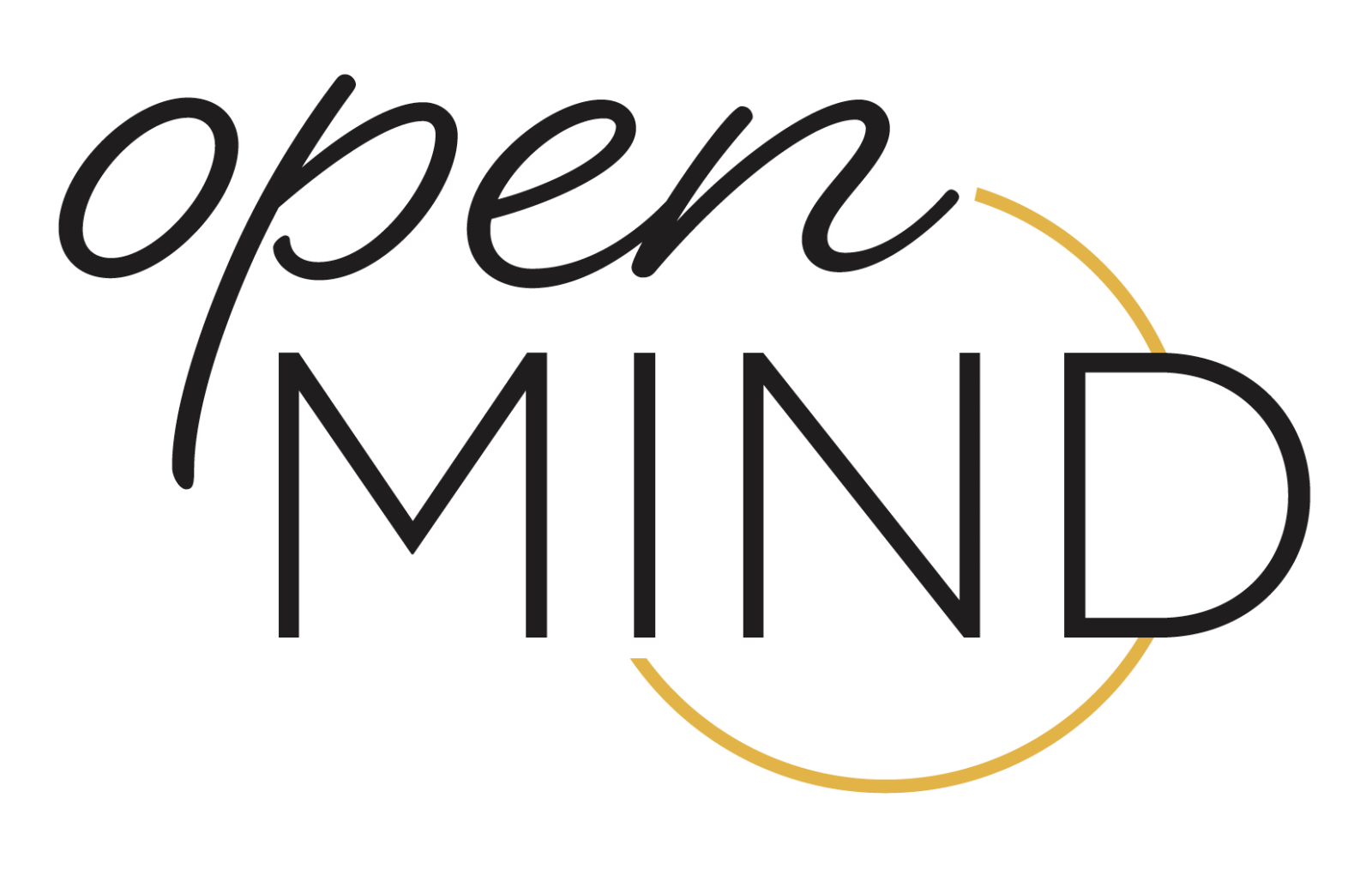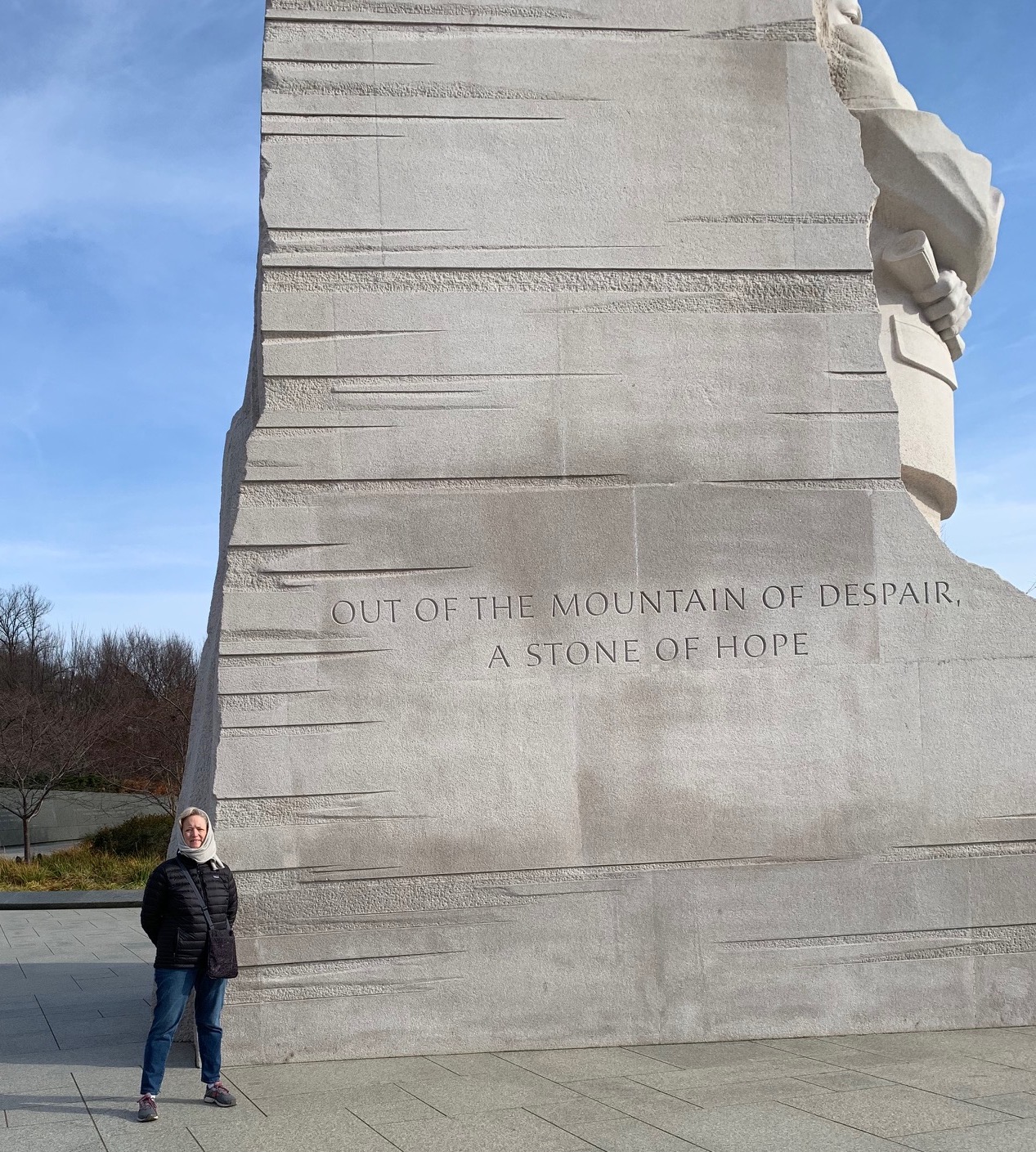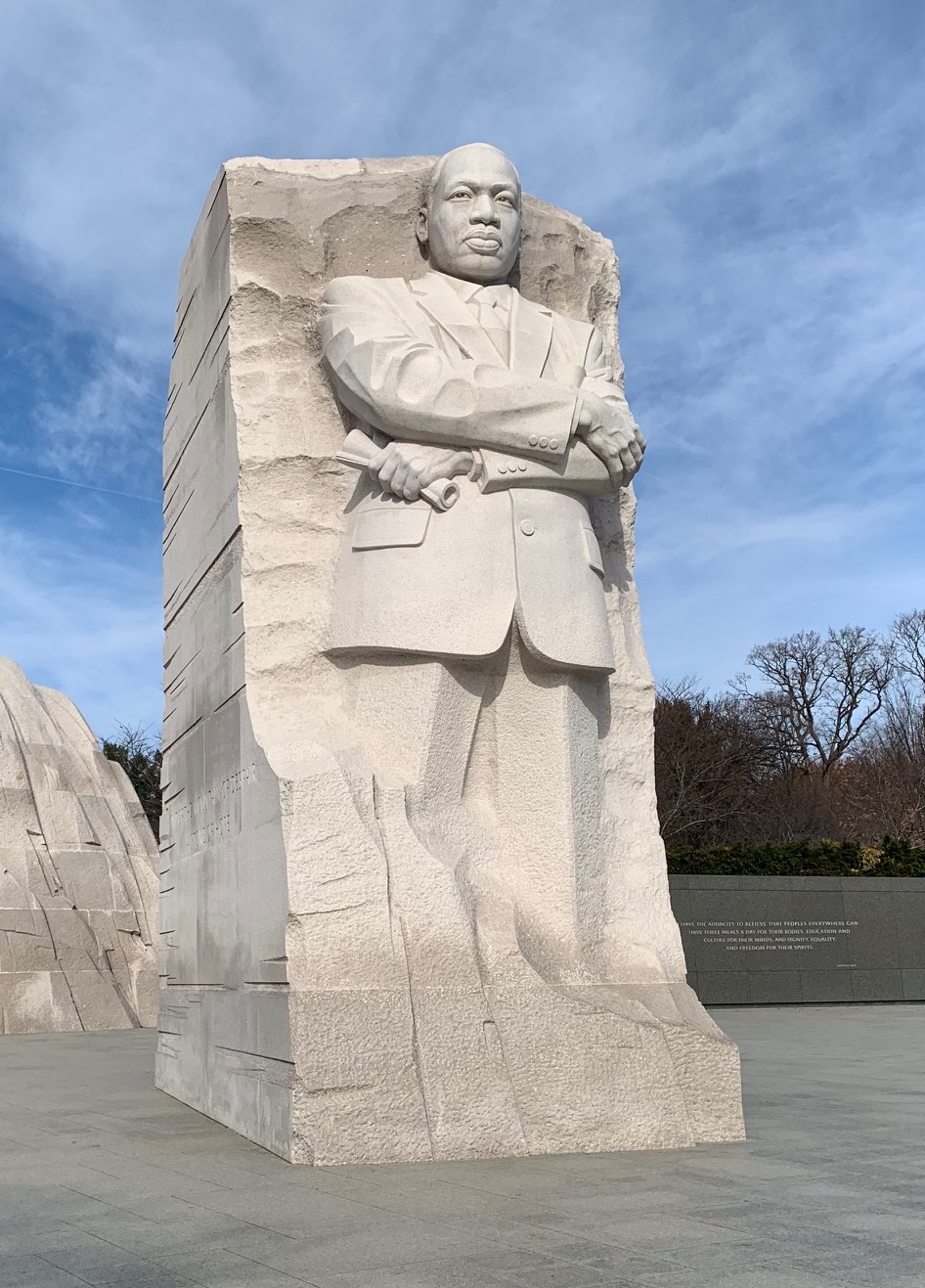 “Out of the mountain of despair, a stone of hope.” I reflected upon these 10 words this December when I visited the Martin Luther King Jr. Memorial overlooking the Tidal Basin in Washington, D.C. These powerful words, taken from his iconic “I Have a Dream” speech and carved into the monument, embody both Dr. King himself and also his vision of a society where hope exists in the face of pain and suffering. Standing in the shadow of this powerful work of art made me breathe deeply and reflect upon the tumultuous path our country still travels, and what we, as a people and a nation, can achieve when we hold fast to hope.
“Out of the mountain of despair, a stone of hope.” I reflected upon these 10 words this December when I visited the Martin Luther King Jr. Memorial overlooking the Tidal Basin in Washington, D.C. These powerful words, taken from his iconic “I Have a Dream” speech and carved into the monument, embody both Dr. King himself and also his vision of a society where hope exists in the face of pain and suffering. Standing in the shadow of this powerful work of art made me breathe deeply and reflect upon the tumultuous path our country still travels, and what we, as a people and a nation, can achieve when we hold fast to hope.
Each day on this campus, my own hope is buoyed by the diverse stories of the individuals in our community. Respecting one another’s stories is essential to our continued pursuit of the inclusive society envisioned by Dr. King.
As we celebrate Dr. King this month, my hope is that we will embrace learning others’ stories as part of our collective progress toward inclusive excellence. This is the guiding principle behind the theme for this year’s MLK Commemorative Series, “The Power of Storytelling: Our Stories Connect Us.”

I encourage all members of the Vanderbilt community to participate in the commemorative events, which range from the 2020 Joint Day of Service on Saturday the 18th to Nashville’s annual MLK Day March on Jefferson Street, followed by a convocation, on Monday the 20th. In addition to Vanderbilt students, faculty and staff, these events engage our wider community, including a consortium of other colleges and universities in the region. These opportunities foster exchanging ideas, finding inspiration and sharing distinct but overlapping perspectives as proponents of higher education and residents of Tennessee.
On Sunday, Jan. 19, Vanderbilt will host a keynote event featuring two distinguished guests. Yusef Salaam, an activist and member of the Exonerated Five (formerly the Central Park Five), was imprisoned for nearly seven years, along with four other innocent boys, for a sexual assault he did not commit. He has shared his story across platforms, including Ava DuVernay’s limited series When They See Us. He will be in conversation with Janelle Monáe, the Grammy-nominated singer, songwriter, actor and entrepreneur who has promoted self-acceptance among her fans by celebrating her own road to success as a black, pansexual woman. I am excited to see how their stories connect and advance each of our own perspectives.
I believe that civil discourse is especially important at universities like Vanderbilt, where people from different backgrounds come together to collaborate and drive collective progress. By learning more about each other, we can find new ways to think boldly and optimistically about our future. As a woman in STEM, a working parent and an academic leader, the stories of others have inspired me to reach further, support other people and make discoveries that benefit society.
Vanderbilt, as an institution, also has a story to tell as we write new chapters of progress toward diversity and inclusion. A prime example is the Trailblazers portrait series. To date, the series includes nine paintings featuring pioneers such as Dorothy Wingfield Phillips, the first African American woman to receive an undergraduate degree from Vanderbilt; David Williams II, the university’s first African American vice chancellor, who defined the Vanderbilt Way; and Rev. Walter R. Murray, founder of the Association of Vanderbilt Black Alumni. The Trailblazer portraits illustrate the stories of people who have shaped our university, often facing racial injustice and obstacles in so doing. Together, they remind us that our university has not always been fair and equal, and that progress is made in many different ways. Individual stories can inspire us to be better and more just.

We are also creating initiatives to empower others to develop their own stories of success at Vanderbilt. Through the Russell G. Hamilton Graduate Leadership Institute, named after Vanderbilt’s first African American dean, we are creating a pipeline of talented future academic leaders. For more than 20 years, the Meharry-Vanderbilt Alliance has connected students and faculty from Vanderbilt University School of Medicine and Meharry Medical College resulting in a partnership that enables us to make a greater impact on our wider community. The Fisk-Vanderbilt Master’s-to-Ph.D. Bridge Program offers opportunities for students from underrepresented backgrounds to become experts in STEM fields. Last semester, I founded the Interim Chancellor’s Diversity Council, which is charged with helping us think further and strategically about inclusive excellence.
Our progress has undoubtedly been fueled by trust, transparency and teamwork. And in turn, these three principles will be key to moving us forward as we continuously evolve as an inclusive and accepting university where all belong.
Our strides aimed forward, our resilience in the face of setbacks, our refusal to be satisfied when so much remains to be done are all grounded upon our “stone of hope.” Let’s continue to learn from Dr. King—and the stories of one another and our larger community—to make progress together.